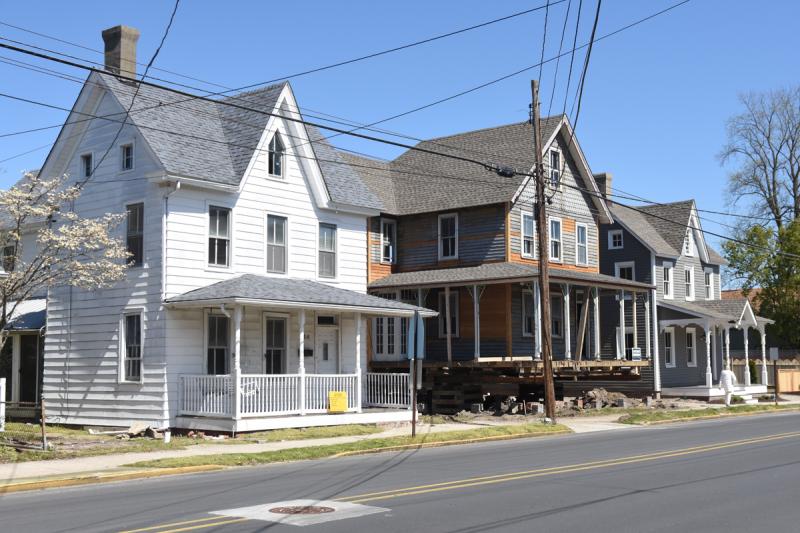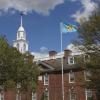Bradley house demolition request denied
The Lewes Historic Preservation Commission voted 5-1 April 14 to deny a request by Bethel United Methodist Church to demolish the former home of convicted pedophile Earl Bradley.
In a public hearing prior to the vote, the majority of residents spoke in opposition of razing the home at 344 Savannah Road. Several residents said no crimes occurred at the home and the commission should follow city code and preserve the historic, contributing structure.
“This house for over 100 years has been home, comfort and solace to many, many families,” said Savannah Road resident Joe Kosaveach. “The house is not evil. The person who owned the house was evil. He was finally brought to justice.”
Bradley is serving 14 life sentences plus 164 years after being convicted of rape, assault and sexual exploitation involving 86 children at his Lewes office. Bradley's pediatrics office on Route 1 was demolished in 2011.
Bethel was given the property after Wells Fargo bank was unable to sell it. The Rev. Earle Baker, pastor, said church officials have not tried to sell the property since receiving it; Bethel only received authorization from district officials in November to demolish the house.
To sell the property, he said, officials would have to get permission from the district board of locations and buildings of the Dover district of the United Methodist Church. The board serves as a watchdog to ensure churches have properly thought out the acquisition or selling of property.
“I do not believe they would allow us to sell it below fair market value,” he said.
Building inspectors have determined the house is structurally sound, which is a key factor in the HPC's decision on demolition. Baker said he's been told by contractors that it would cost $350,000 to $400,000 to renovate the home. The cost coupled with the stigma associated with the house makes it a risky investment, he said.
Baker disputed the age of the home, saying church officials have found records showing the home was built in the 1920s. Regardless, the home is recognized as a historic, contributing structure by the state and federal governments.
Because the home is zoned residential, Baker said, it is unlikely the home could be used as offices.
Residents in favor of demolition said the elimination of the house would help the healing process for Bradley's victims and their families.
“We're trying to exonerate everyone in the community from the pain,” said resident Eric Kakfa. “We're trying to move past it. It's become a haunted house. I think it would be better for everybody if that house was razed.”
Deborah Dawson, a Bethel member, questioned the cost of preservation.
“This structure is the last inanimate reminder of the crimes that were endured by so many of our most vulnerable citizens,”she said. “They, and those who love them, need to heal.”
Residents opposed to demolition urged the commission to follow the city's code and not let their emotions play a role in the decision.
“This is not the first stigmatized house to come on the market in Lewes,” said local realtor Steve Sumption. “There have been other ones with some horrific occurrences that have been renovated and the town and everyone has moved on.”
Resident Alan Keffer said the country is full of historic structures with grim pasts.
“Destroying this historic structure will not alleviate the damage done by this man, but will eliminate forever a significant historic home...” he said. “If the same [procedure was used] for crimes committed on properties, then many of our national treasures would now be gone.”
Ultimately, the majority of the commission voted against demolition of the house. All cited city code and historic preservation regulations when casting their vote.
“We are carrying out the regulations of the city,” said commission Chair Elaine Simmerman. “I will say I'm not convinced this is enough of an exception … It's not about the owner, it's about a structurally sound historic house in the Lewes historic district, which is protected by regulations in the code of the city of Lewes.”
Todd Sammons, who cast the lone vote in favor of demolition, said he would vote to deny demolition in 99 percent of cases, but this was an exception to the rule.
"I don't believe this would set a precedent," he said. "We have to weigh in the human factor. I feel if everything were black and white we wouldn't need this commission. I'm doing this for the people who have come forward who said it would bring closure."
Bethel officials may appeal the decision to the city's board of adjustment. Baker said the church will meet to consider its next steps.


















































